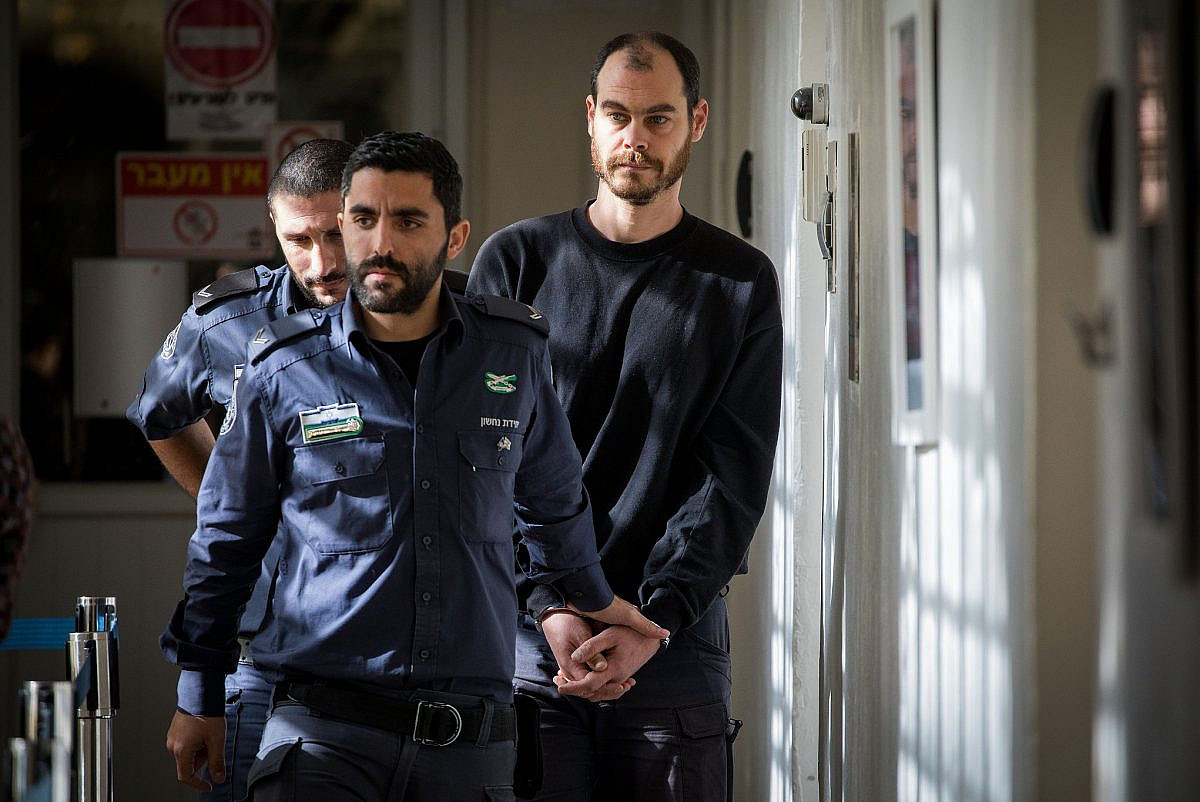For the last few weeks, while I and everyone I know was out in the streets of New York or Tel Aviv protesting Israeli Prime Minister Benjamin Netanyahu and screaming for democracy, my friend Yonatan (Jonathan) Pollak was trapped under house arrest, awaiting trial in Israel.
Yonatan was arrested by Israeli Border Police in January during a demonstration against the illegal settlement outpost of Eviatar, in the occupied West Bank. Eviatar was first built in 2021, largely on land owned by Palestinians from the town of Beita, whose residents have lived there since long before the State of Israel was founded. The outpost was temporarily evacuated by Israeli authorities due to its illegality even under Israeli law, but was reinstated in June 2023 by violent and radical settlers, all with the backing of the government and even active participation of some of its far-right ministers. At least nine Palestinians have been killed by Israeli forces during demonstrations against the outpost since 2021.
Yonatan was held in detention for several weeks and then released to house arrest — hardly his first time. As his trial date approached, he and his lawyer Riham Nasra demanded something radical: that he be tried not in an Israeli civil court, as is customary for Jewish Israelis, but in Israel’s military courts, which try Palestinians in the occupied territories. As expected, this demand was not honored; to do so would have meant breaching the barriers between two legal systems for two peoples in the same geographic area. There is a word for that: apartheid.
I have been an activist in Israel-Palestine for close to 20 years. I have seen Israelis march, get tear gassed and arrested, and pitch tents and camp out in Palestinian homes under risk of demolition or settler takeovers; and I have done all of these things myself. But Yonatan’s act is different — something most of us would never think to do.
When Israeli or American activists talk about equality and democracy, we’re usually imagining bringing everyone up to the level of privilege that we currently hold. But how many of us are willing to sacrifice that privilege for the sake of real equality? How many of us are willing to pay the price for it? That’s exactly what Yonatan is doing. Today, when I hear the word “equality,” I think about his powerful act of resistance.
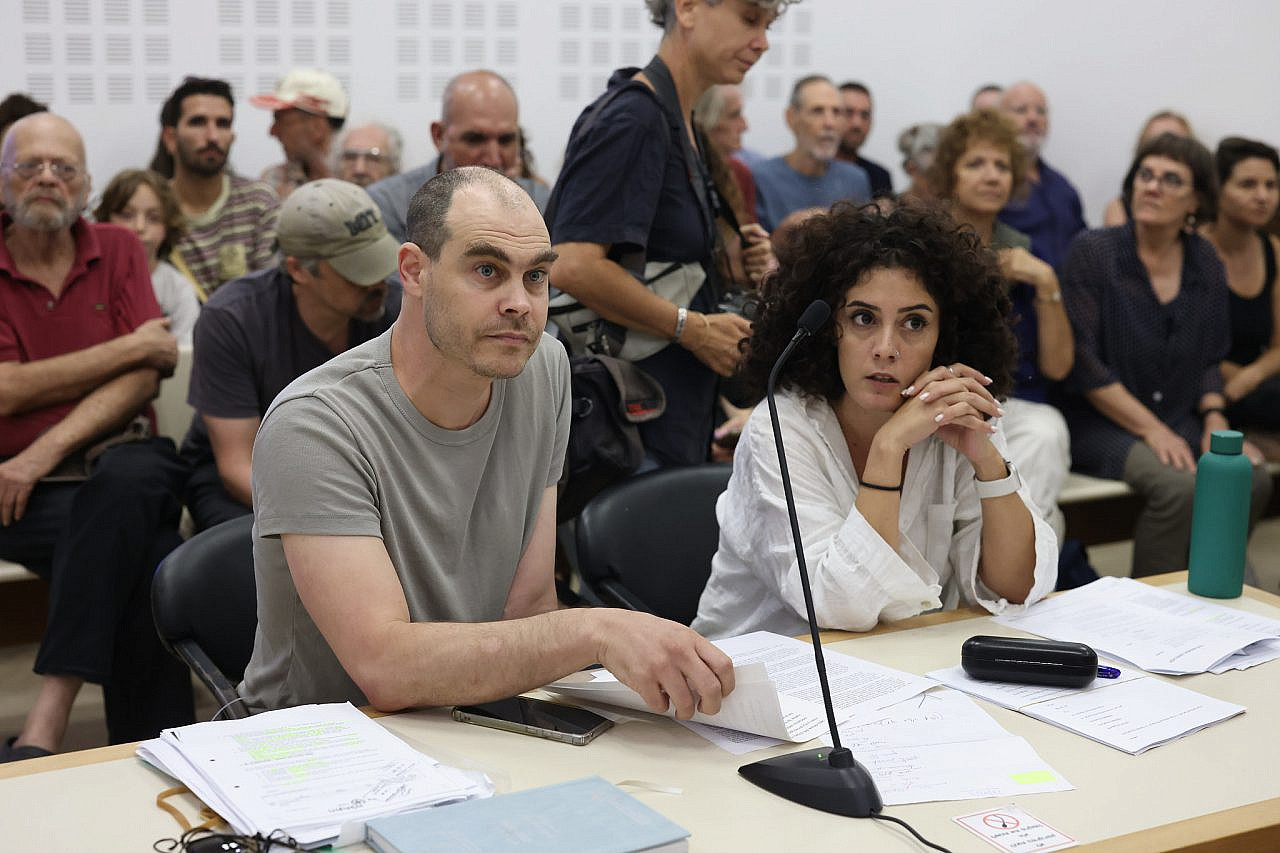
‘If part of the regime is a military dictatorship, we must treat all of it that way’
Yonatan was one of the first Israeli anti-occupation activists I met almost 20 years ago. He was always very clear and very concrete. I recall a meeting I organized for international campaigners in 2008 about Israel’s separation wall, which was still under construction at the time. The experts and activists began discussing whether they would oppose the wall if it were actually built along the Green Line — the armistice boundary that separated Israel from Jordan after the 1948 War — rather than cutting deep into the West Bank.
After several minutes of theoretical and philosophical debate, Yonatan intervened forcefully: “What are we talking about? This isn’t hypothetical. There’s this wall. Our choice is to accept it or oppose it. I oppose it. End of discussion.”
Israeli philosophy professor and activist Anat Matar recently pointed out that, when it comes to our values and principles, we often know the right thing to do, but we constantly give ourselves small allowances because life has to go on. Yonatan, she says, is wired differently in this regard: he cannot give himself those allowances, nor live with those hypocrisies.
Yonatan is not a solidarity activist from afar like so many of us. He experiences the everyday challenges imposed by Israel on Palestinians up close. For two decades, he’s been a regular at protest actions in the West Bank, particularly in areas where there is active Palestinian popular resistance. He speaks fluent Arabic and, despite his rough exterior, develops deep embedded relationships with Palestinians. This makes his already uncompromising nature even starker; he simply can’t live with the injustice of it.
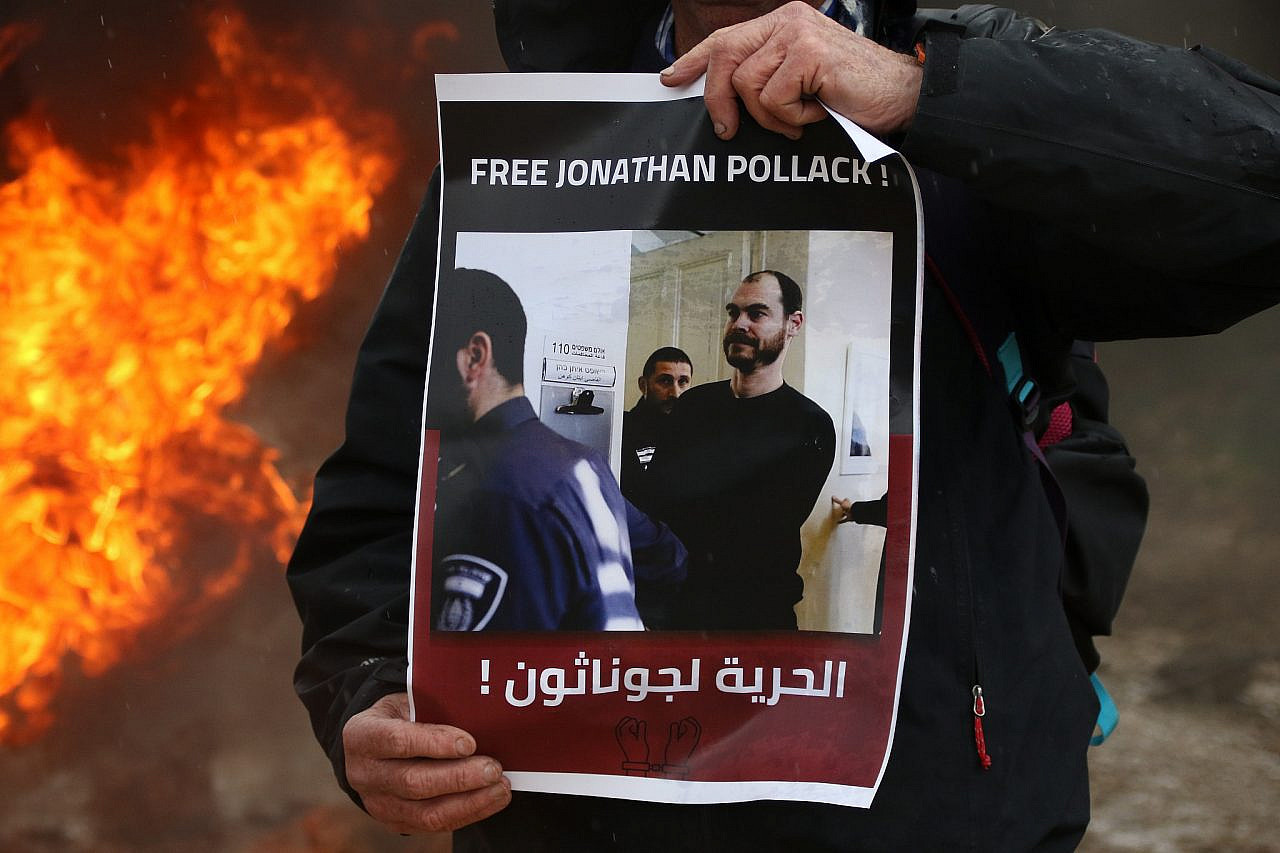
In his statement upon his arrest, Yonatan said: “I will not go (to court) because half the people under Israeli control are second-class citizens, in the case of the Palestinians who are Israeli citizens, or subjects lacking any basic democratic rights, in the case of the Palestinians living in the occupied territory. Despite the complex bureaucratic mechanisms designed to disguise that fact, there is one regime between the river and the sea, and if part of it is a military dictatorship, we must treat all of it that way.”
The Israeli military justice system in the West Bank is a kangaroo court. This is a fact. Human rights organizations like B’Tselem, Yesh Din, Military Court Watch, Addameer, Adalah, Human Rights Watch, and many more have documented it; media outlets in Israel and around the world have covered it; documentary films have been made about it; and politicians have spoken up about it. This is a court system where fewer than one out of every 400 people is acquitted, and more than 99 percent of cases end in conviction. It is a court system whose very existence is a major reason why the regime in the occupied territories is so often defined as apartheid.
This court system was put into place after Israel conquered the West Bank and Gaza in 1967, to try to create an Israeli-imposed order over the newly occupied population. Since then, about 800,000 Palestinian men, women, and children have been detained in Israeli prisons and brought before these kangaroo courts. Children as young as 12 years can be prosecuted, and between 500 to 700 minors are detained each year. As former Chief Military Justice Dov Shefi famously admitted in the 2011 film “The Law In These Parts”: “Order and justice don’t always walk shoulder to shoulder.”
In other words, a legal system meant to control an enemy population can never deliver them justice. And, in an act of radical equality, Yonatan is demanding the same treatment that it offers Palestinians.
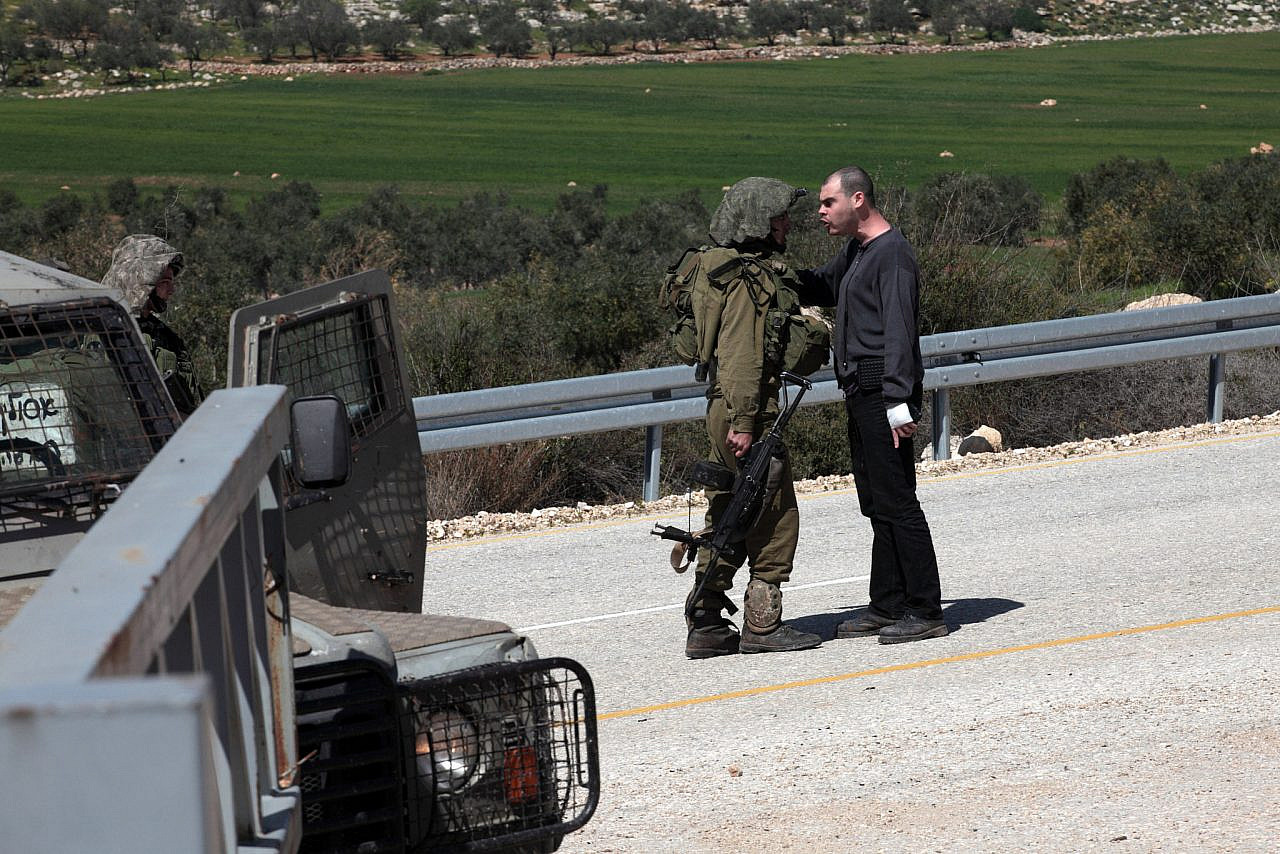
Walking alongside the oppressed
There are those on the political right who might try to dismiss Yonatan as an extremist activist who has “sided with the enemy.” There are also those on the mainstream left who might think that challenging the occupation in this way is an impractical tactic. But both are wrong.
Consider the example of Zackie Achmat. In South Africa in 1990, when the apartheid regime was still intact, Achmat was a young HIV-positive activist, and he did something similar to what Yonatan is doing now: he refused to take life-saving antiretroviral medication until it was accessible to everyone. At the time, such drugs were inaccessible to anyone who was not exceptionally wealthy (the vast majority of the country’s population, particularly Black South Africans), and though he personally had the means, Achmat turned down the drugs to advocate for its public availability; even later, when President Nelson Mandela implored him to take the medicine, he still refused.
Achmat’s demand for a mass roll-out of generic medication to all South Africans helped launch the Treatment Action Campaign (TAC) in 1998, which became one of the most effective health campaigns in history, and eventually pressured the government of Thabo Mbeki to introduce affordable and accessible medication.
Achmat then, like Yonatan now, relentlessly stood by his call. Not only did this campaign deliver tangible results, with life-expectancy rising dramatically in rural communities across South Africa, it also succeeded in creating massive culture change that helped destigmatize HIV in the eyes of many in the country and the world.
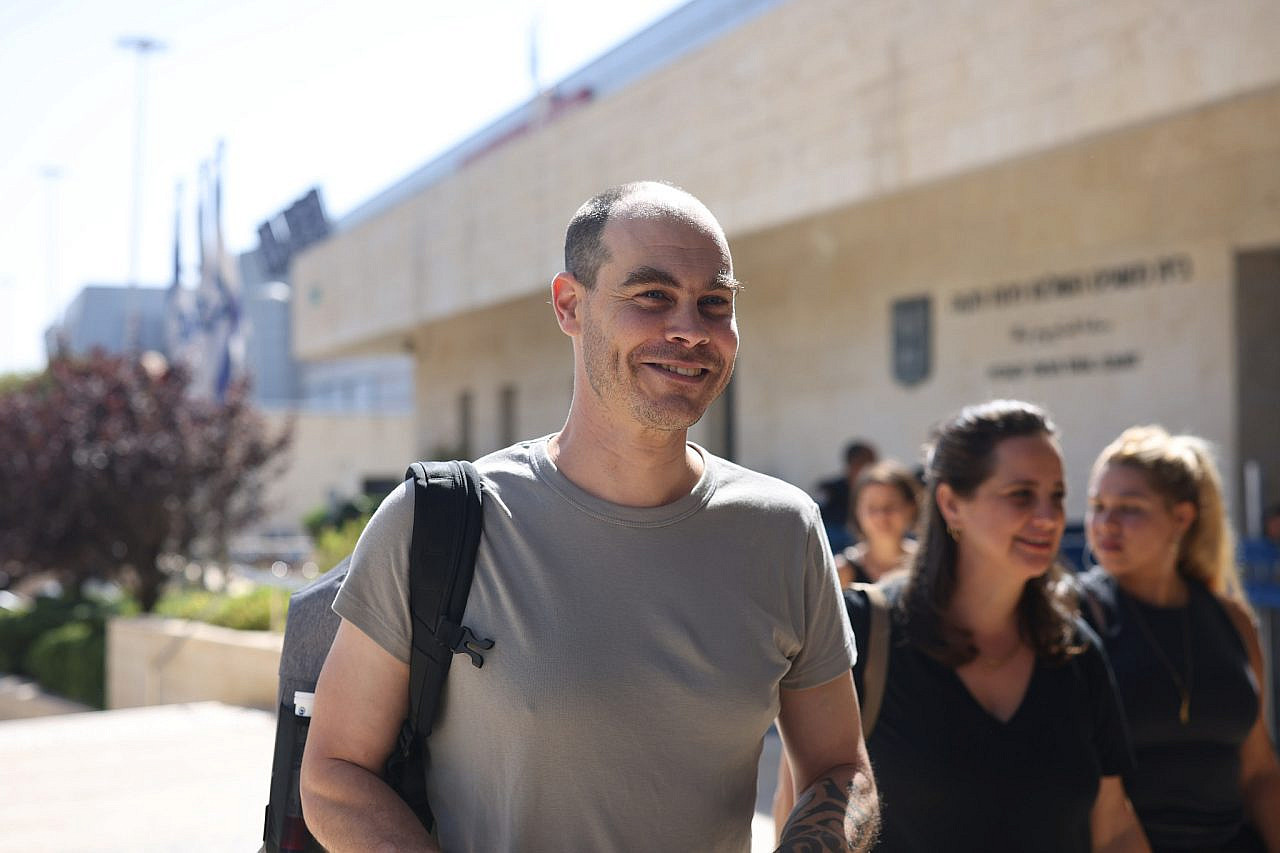
Activists like me tend to think of ourselves as alternatively valiant and beleaguered — we work hard against the grain to fight oppression, and so few people seem to care. But at the end of the day, we often go home to privileged lives, feeling pretty good about ourselves, vowing that we’ll fight again tomorrow.
Yonatan is showing us a different, more radical way to fight for equality — not by comfortably demanding that everyone’s rights be raised up to our level, but by actually walking in the shoes of the oppressed, alongside the oppressed. Maybe his irreverence is threatening to some; maybe his language is extreme for others. But his resistance is a clarion call that should make us all stop to think — and then act.

